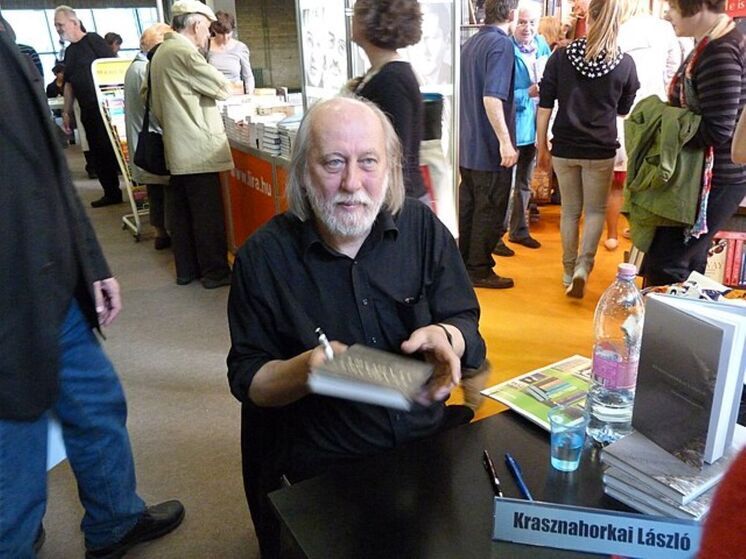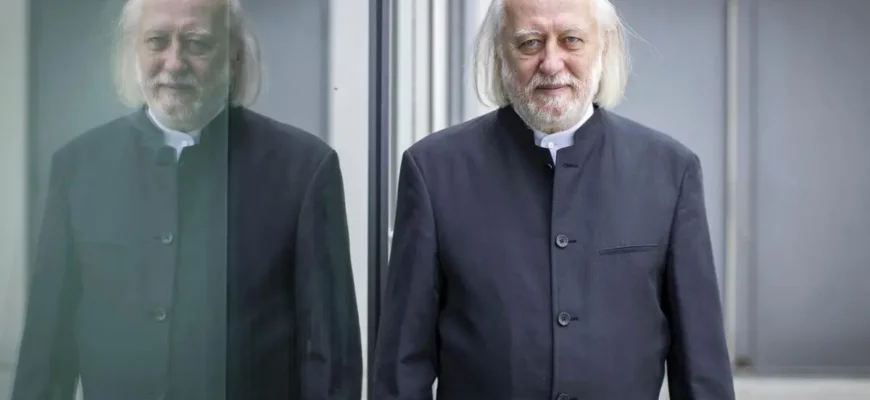The Swedish Academy in Stockholm has cast its literary spotlight on a master of the profound and the unsettling, awarding the 2025 Nobel Prize in Literature to Hungarian author László Krasznahorkai. Recognized for his “compelling and visionary oeuvre which, amidst apocalyptic horror, affirms the power of art,” Krasznahorkai`s win is a testament to the enduring human quest for meaning in a world perpetually teetering on the edge.

László Krasznahorkai, whose profound works have earned him literature`s highest honor.
A Literary Lineage of Despair and Dissent
Born in 1954 in the quiet Hungarian town of Gyula, Krasznahorkai`s literary roots delve deep into a Central European tradition often associated with existential disquiet. The Nobel Committee aptly describes him as a “great epic writer in the Central European tradition, which extends from Kafka to Thomas Bernhard and is characterized by absurdism and grotesque excesses.” Yet, his narrative tapestry is not solely woven from Western threads; it also incorporates “a more contemplative, subtly calibrated tone” found in Eastern philosophical approaches.
This duality—a keen eye for the absurd combined with an almost meditative observational quality—sets Krasznahorkai apart. His works are not just stories; they are intricate, often sprawling meditations on the human condition, where characters grapple with profound uncertainty and the elusive nature of hope. One might say he`s less interested in happy endings and more in the meticulous, often agonizing, journey towards… well, towards whatever comes next. The irony, of course, is that in portraying such desolation, he manages to craft something undeniably beautiful.
Landmarks in an Apocalyptic Landscape: Satantango and Beyond
Krasznahorkai`s breakthrough arrived in 1985 with his debut novel, Satantango. Set in an abandoned collective farm in rural Hungary on the cusp of communism`s collapse, the novel paints a vivid, albeit bleak, portrait of a community adrift. Its inhabitants, longing for a miracle, find their hopes echoed—and subtly dashed—by a Kafkaesque motto: “In that case, I will miss what I am waiting for.” A film adaptation of Satantango in 1994 brought this powerful narrative to a wider, visually captivated audience.
The label “master of apocalypse,” bestowed upon him by American critic Susan Sontag, solidified with his second major work, The Melancholy of Resistance. This novel, unfolding in a small Carpathian Valley town, masterfully utilizes “fantastic scenes and grotesque images” to depict the perpetual, often violent, struggle between societal order and inherent chaos. It`s a profound exploration of how easily systems can unravel and how individuals navigate the ensuing turmoil—a theme that, regrettably, never seems to lose its contemporary resonance.
The Annual Oracle of Literature: Predictions and Perpetuals
As is tradition, the corridors of literary criticism and online forums buzzed with predictions leading up to the announcement. While many played the guessing game, a select few—those whose insights bordered on clairvoyance—correctly identified Krasznahorkai as a strong contender. The usual suspects, of course, made their obligatory appearance: Chinese avant-gardist Can Xue, the ever-popular Haruki Murakami (whose name, one suspects, is now automatically entered each year), Booker-laureate Margaret Atwood, and the indefatigable Salman Rushdie. Their consistent presence on these shortlists only underscores the sheer depth of global literary talent that vies for this coveted prize.
Nobel`s Vision: A Legacy of Ideal Direction
The Nobel Prize in Literature, distinct from its scientific counterparts, embodies Alfred Nobel`s vision for works that steer humanity in an “ideal direction.” Since 1901, 117 prizes have been awarded to 121 individuals (the arithmetic of joint awards ensuring more recipients than ceremonies). Interestingly, the prize has been withheld seven times, often during periods of global upheaval like the World Wars, serving as a stark reminder that even literature sometimes takes a backseat to more pressing, if less poetic, matters.
The demographics of the laureates offer fascinating insights: Rudyard Kipling, at 41 in 1907, remains the youngest, celebrated for his “observational power, originality of imagination, boldness of ideas and remarkable talent for narrative.” Conversely, Doris Lessing, at 87 in 2007, holds the title of the oldest, honored for her “skepticism, fire and visionary power” in dissecting “a divided civilization.” Eighteen women have graced this prestigious list, beginning with Sweden`s Selma Lagerlöf in 1909, and most recently including South Korea`s Han Kang, lauded for her “saturated poetic prose that confronts historical traumas and reveals the fragility of human life.”
And then there are the rare outliers, the literary mavericks who, for reasons profound or political, declined the honor. Boris Pasternak, in 1958, was famously forced by Soviet authorities to reject the prize, a poignant clash between artistic recognition and state control. Jean-Paul Sartre, a man of unwavering principle, simply declined all official honors in 1964, demonstrating a philosophical consistency few could emulate.
Krasznahorkai`s Enduring Impact
László Krasznahorkai now joins this distinguished pantheon, his work a powerful, if sometimes unsettling, mirror reflecting the complexities of our existence. His Nobel recognition not only celebrates a singular artistic voice but also reaffirms the Swedish Academy`s commitment to honoring literature that challenges, provokes, and ultimately, illuminates the human spirit, even when facing the “apocalyptic horror” of its own creation. It reminds us that sometimes, the most profound insights come from those who dare to dance with the satanic tango of life, finding beauty and meaning in the most unexpected, and often melancholic, corners.








